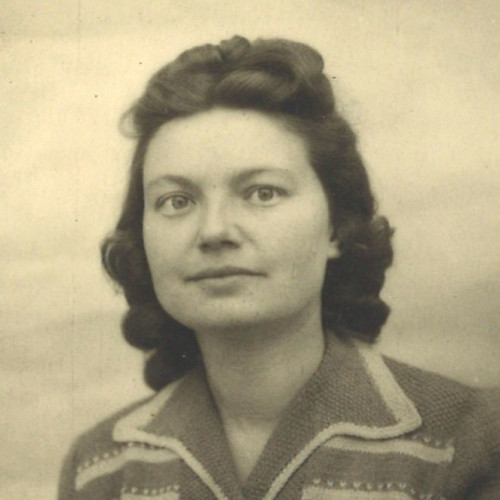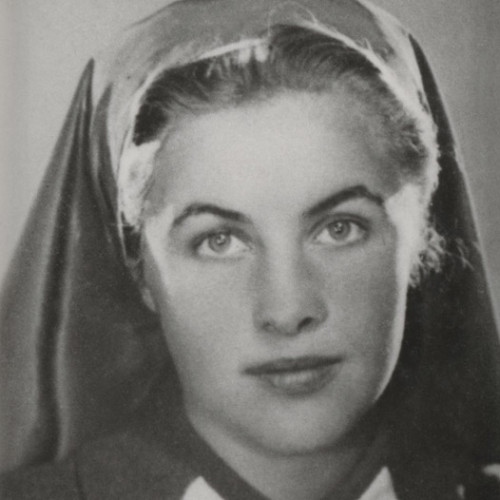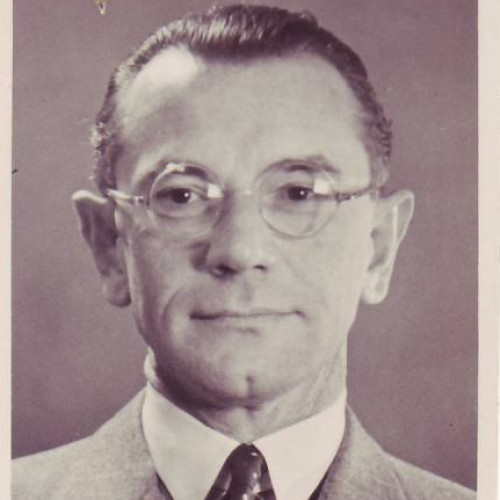Anna Jelínková (1918–2009) - Instytut Pileckiego

During the war the Jelíneks saved more than 40 people: the Jewish families of Fischer and Fronk, the Polish family of Siekierski, Feliks Zubkiewicz, whose loved ones were killed by the Ukrainian Insurgent Army, and the Ukrainian family of Lutsyuk.
In 1937, the care of the Evangelical parish in Kupiczów, Volhynia was entrusted to Jan Jelínek. The young pastor quickly won the hearts of the local Czechs, who had settled there in the 19th century. In his sermons he preached love of neighbor regardless of his nationality, religion and beliefs. These were not obvious teachings with Europe facing the threat of war. When it eventually broke out, Jelínek practiced what he preached – he modeled himself on the Good Samaritan.
As early as in 1939, the pastor provided shelter for Polish soldiers who were fleeing Soviet occupation to Romania. When the Germans replaced the Soviets as the occupying power, Jelínek engaged in helping the Jews – he hid them in his house and brought food to the ghetto in Kowel. “I was helping a human being,” he once said in response to a German officer who threatened him with death for rescuing Jews. Jelínek was supported in his activities by his wife Anna, whom he married in 1942.
During the Volhynia Massacre they gave shelter to Poles from the villages attacked by Ukrainian nationalists. Jelínek’s example was followed by his Czech parishioners, and thus Kupiczów became a haven for many Poles fleeing the Ukrainian Insurgent Army. When in 1944 the Germans were repelled by the Soviets, Jelínek issued false birth certificates to people in danger of arrest by the NKVD.
During the war the Jelíneks saved more than 40 people in total, mostly citizens of the prewar Poland: the Jewish families of Fischer and Fronk, the Polish family of Siekierski, Feliks Zubkiewicz, whose loved ones were killed by the Ukrainian Insurgent Army, and the Ukrainian family of Lutsyuk.
The Jelíneks left Volhynia with the Czechoslovak Army Corps that fought alongside the Red Army. After the war they settled in Oráčov in western Czechoslovakia. Jan was persecuted for his beliefs by the communist authorities, and as a result his health deteriorated, but both spouses lived to a ripe old age.
Dear Reverend Father, on this momentous and festive occasion I would like once again to express my heartfelt gratitude for the help that you had offered our family at the time of inhumane barbarity of the Ukrainian Insurgent Army bands in Volhynia. Such humane gestures are never forgotten! Respectfully Yours
Letter from Halina Siekierska-Ligęza to Jan Jelínek on the occasion of his 90th birthday, 2002
See also
- Ilona Andrássy de Csíkszentkirály et Krasznahorka

awarded
Ilona Andrássy de Csíkszentkirály et Krasznahorka
(1917–1990)Following the outbreak of the Second World War, Ilona Andrássy was working together with other aristocrats, established the Hungarian-Polish Refugee Welfare Committee in Budapest.
- gen. Lóránd Utassy (1897— 1974)

awarded
gen. Lóránd Utassy (1897— 1974)
Utassy denied the Gestapo access to the internment camps and refused to surrender Polish soldiers. He also participated in talks with the Red Cross, aiming to establish it as the representation of Poles who had found themselves on Hungarian soil.
- Paraskewa Padlewska

awarded
Paraskewa Padlewska
(1888–1960)“Housewife” – the official term used to describe women who were not gainfully employed does not reflect the resourcefulness which Paraskeva Padlevska displayed.


